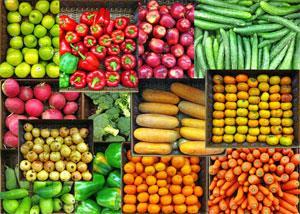The government’s decision to delay the launch of post-Brexit physical checks on “medium risk” fruit and vegetables imported from the European Union for another six months has been given a qualified welcome by the logistics and haulage sectors.
The delay, announced late last week by the Department for Environment, Food and Rural Affairs (DEFRA), is to give the new government time to consult with stakeholders involved in the import supply chain on the potential impact of the checks.
However, both the RHA and Logistics UK this week called for the new government to make a swift decision on how it will implement the new border regulations on imports of foods, to give the industry clarity.
The post-Brexit border controls require pyhsical checks on foods imported into Britain from the EU.
Under the rules there are three main risk categories identified for imports of animals, animal products, plants and plant products into Great Britain. These are high risk, medium risk and low risk.
The first phase of the new rules came into force at the end of January this year, requiring health certificates on EU goods ranging from cut flowers, to fresh produce including meat, fruit and vegetables.
The second phase, launched in April, began physical checks for products such as chilled and frozen meat, fish, cheese, eggs, dairy products and certain cut flowers and seeds.
However the third phase, which will introduce physical checks on fruit and vegetables, has been delayed several times and has now been pushed out from January 2025 to 1 July 2025.
Commenting on the latest delay, RHA public affairs manager, Ashton Cull gave a qualified welcome to the review but called for the government to deliver a clear policy on border controls at pace.
He said: “With the raft of changes our sector has been adapting to and preparing for, and amidst one of the most challenging economic situations the road haulage industry has faced, businesses want certainty.
“While we understand the need for a short delay in the current circumstances, it’s imperative that the government makes clear the details of its planned future trading arrangements as soon as possible.
“Clarity on the way ahead would give everyone involved in European trade the time to prepare and avoid additional unnecessary expense. We’ll continue to engage with government to seek that clarity on behalf of our members.”
Nichola Mallen, Logistics UK head of trade, welcomed the review. She said: “The news that government is delaying the reclassification of fresh produce and the need for additional costs and checks on these imports from the EU will be welcome news for those responsible for moving these goods into the country.
“It is vital that the movement of fresh food is undertaken as swiftly and seamlessly as possible to ensure goods in our shops are of the best possible quality, and this is something that the logistics industry has been pressing for for some time. It is good to hear that the government is listening to the concerns of our sector and taking action.”
Announcing the delay last week Defra said it was a ”temporary measure to ensure that new ministers have a full and thorough opportunity to review the planned implementation of further border controls, and an opportunity to listen to businesses across import supply chains.”
Defra added that it has also changed the risk categorisation of certain plants and plant products, including deregulation of certain products, ”following further scientific review of commodities across all plant and plant product risk categories.”
Seven commodity groups, including apples and pears, will be recategorised from medium risk to low risk, allowing these goods to move freely into GB from the EU, Switzerland and Liechtenstein, with the changes coming into force on 30 January 2025.
The review follows warning from across the food supply chain that the new checks will add costs of over £300m to the fruit and vegetable industry, resulting in higher prices for consumers.














![GB S&S[80377]](https://d2cohhpa0jt4tw.cloudfront.net/Pictures/100x67/3/9/3/19393_gbss80377_245688.png)


